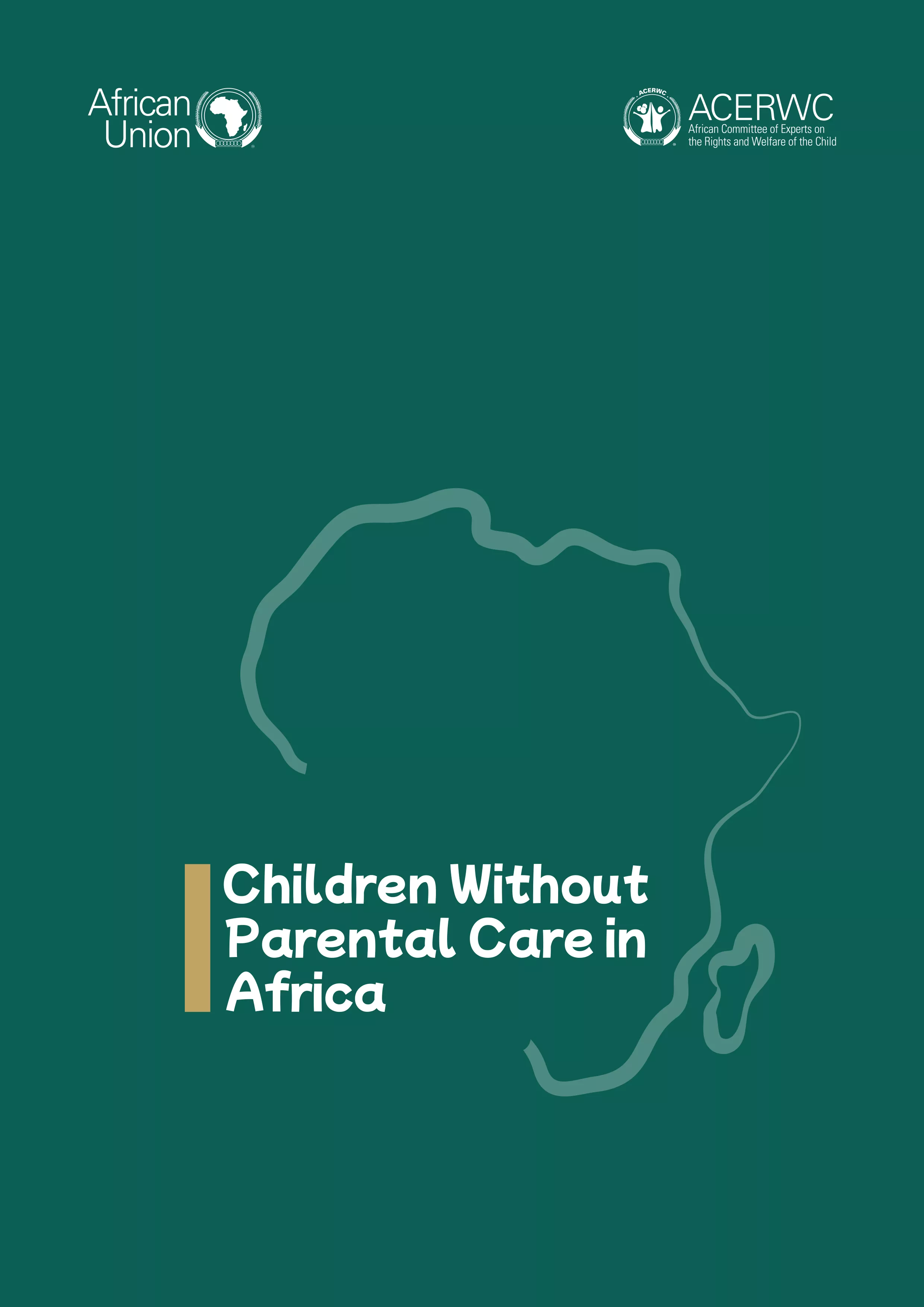Study on children without parental care in Africa
A report released by the African Committee of Experts on the Rights and Welfare of the Child, part of the African Union, has shown that an estimated 35 million children are without parental care in Africa.
Children Without Parental Care in Africa
The study, the first of its kind for the African continent, was conducted from 2020 to 2022, covering 43 countries in the five regions of Africa.

The report finds that these children and youth are more likely to experience discrimination, violence, getting in trouble with the law, sexual abuse, exploitation, early marriage, substance and drug abuse, poor mental health, limited access to education and healthcare, and are more deeply impacted by external factors like climate change, natural or man-made disasters, war, conflict and displacement.
Dr. Dereje Wordofa, President of SOS Children’s Villages International, at the event launching the report, said:
"The findings of this study make it abundantly clear that we cannot continue with business as usual. Instead, we must embrace a meaningful paradigm shift in how we conceptualize, invest, and take action to address these challenges."
The study indicates that many African countries do not explicitly include provisions for protecting and caring for children without parental care (CWPC). More than 70% of countries in various regions of Africa lack explicit, comprehensive child protection policy frameworks and guidance.
The most practiced alternative care options for CWPC across Africa include kinship care, foster care, kafala, residential care, and institutional care. The availability of these options varies by region.
The study, the first of its kind for the African continent, was conducted from 2020 to 2022, covering 43 countries in the five regions of Africa, and provides baseline information to better understand the plight of children without parental care in Africa. It was produced by the African Committee of Experts on the Rights and Welfare of the Child in collaboration with African Union member states, partner organizations and children and young people.
Young people with experience in alternative care from different African countries attended the launch event, which was held in Addis Ababa, Ethiopia. They had an opportunity to highlight the challenges affecting them and give recommendations. Rokya, 27, from Senegal, is optimistic that there will be change with the report's release.
"A lot of suggestions and ideas were put forward,” she said. “I am very confident that a lot of things will change as a result of this study because so many countries are involved. A number of countries have shared the strategies they plan to put in place to improve the situation of children without parental care in Africa.”
“Today, I had the opportunity to speak on behalf of children without parental care,” said Linka, 17, from Burundi. “It was a really great opportunity to be a voice for them, to know that I can contribute to the discussions. I was so glad to be here and to share our ideas because it was not only my ideas but it was developed with other children from different countries.”
Young people hope that all African countries will implement the recommendations in the report to better the lives of children and young people without parental care.
“Many thanks to the committee for conducting this important study, which shows the situation of children and young people without parental care in Africa and can help our States to take the necessary decisions to protect all children,” said Rokya.
"We are grateful to the committee for seeing our suffering and providing evidence for governments to act. This is the first time we've had such a study in Africa, and we're proud of it."
The young people in attendance made the following recommendations to decision-makers:
-
Governments should continue implementing strategies to ensure every child can access basic life essentials.
-
Governments should implement all child protection policies.
-
Governments should develop laws that help children and young people transition to independent living without hindering their developmental rights.
-
Governments must protect children and ensure that abusers are held accountable, regardless of who they are, for the harm they cause and face the full extent of the law.
-
Governments must dedicate a fraction of the budget to support children without parental care and support structures and organizations that care for children without parental care.
-
All stakeholders will have a greater impact working together to implement child protection policies, given the evidence now available and the objectives to be achieved.
Dr. Dereje Wordofa says that SOS Children’s Villages is investing in services that prevent family separation and empower communities to address the root causes of child abandonment and family breakdown.
“We all share the same vision for the children. To materialize this vision, rather than focusing on our differences, let’s collaboratively work on an effective solution based on respect and understanding of each child’s needs.”
